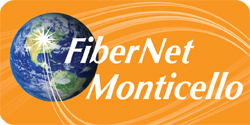Multiple Minnesota Projects Submit "Expressions of Interest" to FCC
We reported in February that the FCC sought "expressions of interest" from entities that want a share of Connect America funds. The agency sought feedback on the need and desire for projects across the country from entities that have not traditionally received universal service funds. The FCC received over 1,000 expressions of interest.
Minnesota leads the U.S. in proposed projects. According to a recent MPR News Ground Level article, 62 expressions of interests come from Minnesota. Projects vary in size; some focus on a small number of homes while others plan to bring services to many people.
All of the proposed projects address gaps in rural broadband service. MPR noted that several of the expressions of interest describe community experience with CenturyLink, Frontier, and Mediacom. The RS Fiber cooperative wrote:
“The communities have approached all three providers [CenturyLink, Windstream, and MediaCom] and asked them to work with the communities to build the fiber network. They all refused. Then the communities offered to put up the money to construct the network and the providers could operate and eventually own the network. None of them were interested.”
The MPR article reports the FCC will likely offer approximately $86 million to the three incumbents to bring broadband to unserved and underserved areas. If they refuse, a long line of interested parties are waiting.
Minnesota's desire for broadband caught the attention of state lawmakers. A bill to earmark funds for rural broadband was introduced earlier this session and has received bipartisan support. From the MPR article:
Even if the Minnesota projects go nowhere with the FCC, they already may have had an impact here in the state.




